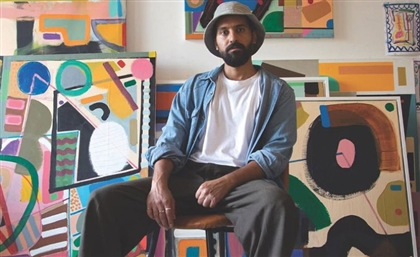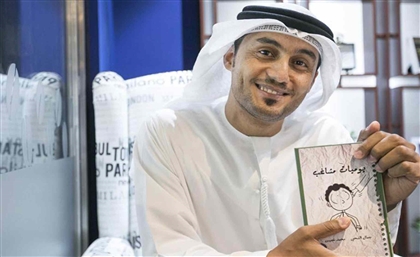Why Investors Should Join the Femtech Revolution in the MENA Region
StartupScene Staff Writer May El Habachi sat down with some of the leading femtech entrepreneurs in the MENA region to discuss the rise of femtech - and why investors need to pay attention.

When Dubai-based entrepreneur Chanda Lokendra saw her friend suffering from intense menstrual cramps, Lokendra took it upon herself to research the cause of her friend’s pain. What she discovered surprised her. Harmful chemicals were used to produce some of the world’s leading sanitary pads, sometimes causing rashes or allergies, and even infections in more serious cases. But what surprised her even more was that many women were unaware of this. After speaking one-on-one with over 280 women, more than 95% didn’t know what went inside their sanitary pads. Lokendra wanted to change that. In 2019 she introduced LiZZOM in the UAE, an organic and chemical free femcare product that would be used as an alternative to mainstream sanitary napkins.
LiZZOM is not the only femtech, or female technology, startup focusing on women’s health. Femtech is now a burgeoning sector for entrepreneurs that are eager to provide women with products and services related to their health, from pregnancy and sexual wellness to fertility and period-tracking apps. But while interest has been gathering pace amongst entrepreneurs, investors continue to be wary about supporting femtech startups.
Globally, the femtech market is estimated to be worth $50 billion by 2025, according to research firm Frost & Sullivan. Regionally, the industry is projected to be worth $3.8 billion by 2031, with a growth rate of 15% from 2021 to 2031, according to a report by FemTech Analytics.
Despite these positive growth trends, investments in the sector are negligible at best. A report published by Femtech Analytics in Q4 2021 titled ‘The Femtech Industry in the UAE’ shows that femtech businesses in MENA accounted for only 5.8% (or $1.7 billion) of the $29 billion invested in digital health in 2021 worldwide. Menstrual health, menopause, and overal women’s health therefore continue to be sectors that are underserved in the region.
Lack of investments
Lokendra believes the reason for the lack of investments in femtech is because it is a new sector, one that has yet to prove itself. “Femtech is still in a very nascent state, but there is a rapid growth in this sector and femtech in itself is changing, and it is changing rapidly,” Lokendra explains.
During her time participating in an accelerator programme, Lokendra had the opportunity to meet with several investors to learn more about their interest in femtech. She discovered that while investors may be new to the concept of femtech, they are ready to support startups in this niche if they show the right numbers. “Femtech is a vast subject and has huge potential,” she says. “The startups that show numbers can’t miss the investment interest.”
Showing traction is not the only challenge- investors want to also see the broader impact of femtech on society. “If female health is taken care of, ultimately society as a whole benefits from it,” she says. “We need to show that impact and establish how it is going to change society in general. When you change women’s lives, how does it impact people around them?”
Farah Dehmouni - founder of IAMENO, an app slated to launch in September this year to support women’s menopausal journey - adds that since investors tend to be mostly men, they often lack the understanding of female healthcare needs, which makes them reluctant to invest in female related products and services. “The fact that women for so long were not able to talk openly about these topics or would feel embarrassed about it affected us,” Dehmouni says.
Stigmatization of women's health-related issues is still very much present in the region. Menstruation, menopause, fertility and sexual health are considered taboo topics and are generally not openly discussed in the Middle East. “When women themselves cannot even speak about their own symptoms, they cannot communicate them to the doctor who cannot get the data, and cannot initiate research,” Dehoumi explains. “Because of this whole system, there is a lack of information and a lack of realization of what women’s needs are.”
But times are changing. With more women speaking up, Dehmouni hopes femtech startups will have a better chance of funding to address women’s health issues. “Stigmas are here to get pushed,” says Dehmouni. “Stigma is the reason for lack of knowledge and unnecessary suffering. But we are now in an environment where we talk more openly about women’s matters. I’ve seen more women in the last few years talk about menstrual health for example. This is already a major achievement, and it will improve.”
Growth trends
With more femtech startups emerging and with more women talking openly about their bodies, investors are starting to take notice.
Globally, venture capital funding for femtech tripled over the last five years to $1.9 billion in 2021, according to Pitchbook data. The region’s startups are hoping this trend will trickle down to the Middle East. One startup that recently raised funding is Omooma. As an educational Arabic content platform for mothers, Omoom raised $2.5 million in investments in July this year. “We saw a gap in the market,” Romain Ollivier, co-founder of Omooma, tells StartupScene. “We realized that high quality Arabic content centered around women and mothers was missing in the region, and we wanted to embrace a project that was meaningful and valuable to society.”
Launched in 2021 in the UAE, the startup already has exciting plans for the future. It plans to expand its platform across MENA and introduce a period tracking tool by as early as 2023.
Another femtech startup that recently raised investments is UAE-based Nabta health. A hybrid platform that provides detection, diagnosis and treatment of women’s related health issues, Nabta Health raised a $1.5 million Seed round in February this year. “There is a huge need and opportunity in the region,” says Sophie Smith, founder and CEO of Nabta Health. “80% of breast cancer is diagnosed at stage 4, and 40% of women are not attending a single antenatal appointment. There are many more similar statistics.”
To increase access to its healthcare services, Nabta Health acquired its first clinic in April this year to provide holistic and hybrid health services to women in the UAE. It plans to establish its second clinic by the end of the year and expand to KSA in January next year. “If we really want to shift the dial for women’s health, we would need to be working on outcomes,” Smith says. “For example, how do you change the number of stage 4 breast cancer diagnoses? What do you need to do with the care to improve that specific metric for women?”
Creating impact
To provide real meaningful change and genuinely impact women’s health, the ecosystem needs to create fertile grounds for femtech startups to grow and flourish in the region. While there are still significant challenges ahead, the region is showing promising signs of progress.
Last year, Flat6Labs, one of the MENA region’s prominent seed and early stage venture capital firms, and Organon, a global healthcare company, launched the region’s first femtech accelerator programme. “We need to support female entrepreneurs and advance women's healthcare if we are to achieve greater gender equity while supporting economic development across MENA,” Hassan Mansi, head of ecosystem development programmes at Flat6Labs Cairo, tells StartupScene. “Our newly launched femtech accelerator will address this need as well as the need for greater digital innovation in the healthcare space.”
The UAE is also emerging as a leading femtech hub in the region. It is home to one-third of femtech companies in MENA, with about 60% of these startups addressing women’s wellness and menstrual health.
While there is still an opportunity for startups to focus on sexual health and menopause, the country is expected to see continued growth in femtech as it prioritizes innovation and gender equity on a national level.
Nevertheless, access to capital remains crucial for femtech startups. Mashal Waqar, who was an entrepreneur in residence with MyLilyBox, a period and femcare subscription box service, adds that investments are needed at an early stage for femtech startups to ensure growth and traction. “Everybody needs traction, that’s what gets you results,” she explains. “But to get traction, you do need capital. If you don’t have that early capital, it becomes difficult to get that traction.”
With investors tightening their belts because of the looming economic downturn, however, things may get more difficult before it gets easier. “What we’re seeing from the investment side right now, is that it’s going to be tougher for founders to raise,” she says. “If it was tough before, it’s going to get even tougher. For female and femtech founders, they were already working against the grain.”
In the U.S., less than 2% of venture capital funding went to all-female founding teams in 2021, according to PitchBook data. The Middle East is no exception to this trend. In H1 2021, startups founded by women received 0.2% of funding, while men-founded startups received 96% of the funding, and mixed teams received the rest, according to a Wamda report.
To help attract funding, Waqar advises female-founded femtech startups to prove their business models. “A lot of the business models need to be proven first. It’s a newer region that we need to test out,” she says. “But if you can successfully show value in a way that people want to actually spend, you’ve hit the jackpot.”
Despite this downturn, Waqar voices her optimism for the future. “Because we have the right tools and information, I expect to see more activity in this space, but we need more capital,” she says. “When we see more capital flowing into these spaces, we are going to see more results. I hope to see that sooner rather than later.”
- Previous Article HOW (NOT) TO GO TO A PING PONG SHOW
- Next Article Viking's Osiris is the New Luxury Cruiseliner Custom Made for the Nile
Trending This Week
-
Dec 27, 2025



























